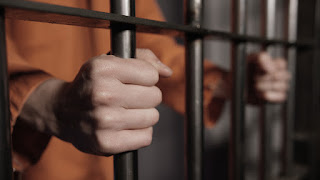Addiction recovery is about many things. Yes, it’s about helping the millions of people battling addiction break free and live a healthy life. But, it is also about so much more, including compassion, health and the right for everyone living with mental illness to escape discrimination. As for the latter, anyone who has been touched by the disease of addiction knows first-hand how rampant discrimination is when it comes to debilitating mental health disorders.
It isn’t a secret that our government’s answer to drugs and addiction has long been about punishment over rehabilitation. America has the largest prison population in the world, a population largely comprised of African Americans, Latinos and poor Caucasians. The clear majority of people behind bars today were not incarcerated because they were murderers or sexual offenders, some of the worst crimes imaginable. Rather, the market share of people behind bars are there because of nonviolent drug and alcohol offenses. A reality that a number of lawmakers and mental health advocates have been trying to change for many years.
For nearly a decade, we have all heard stories of changes that would lead to people who were unjustly imprisoned finally seeing the light of day. The last administration pardoned or commuted the sentences of hundreds of Americans whose only crime was mental illness or being impoverished. We have seen state legislators working to put an end to mandatory minimum sentences, giving judges more flexibility in deciding the fate of a defendant. What’s more, partially owing to the opioid addiction epidemic, “drug offenders” are regularly offered treatment before being sent to jail.
Drug Policy Alliance
While we have many lawmakers to thank for the paradigm shift in the criminal justice system, we also have advocacy groups to thank. Those who have worked tirelessly for the rights of everyone, regardless of where they came from or the color of their skin.
One such organization, is the Drug Policy Alliance (DPA). Whose expressed goal has been to put an end to the failed war on drugs, advocating for policies based not on fear, but science, compassion, health and human rights. Because of their efforts, hundreds of thousands of Americans have found addiction treatment rather than jail cells. Their efforts based on ethical and common sense approaches have resulted in California saving billions of dollars that would have otherwise gone to imprison people who would be better served elsewhere. Doing away with draconian drug laws and promoting a humanitarian approach to drug policy. On the organization’s website, they write:
“Our supporters are individuals who believe the war on drugs is doing more harm than good. Together we advance policies that reduce the harms of both drug use and drug prohibition, and seek solutions that promote safety while upholding the sovereignty of individuals over their own minds and bodies.”
International Drug Policy Reform Conference
Every couple of years, the Drug Policy Alliance brings people from around the world together to discuss better ways to approach mental illness and addiction. At the International Drug Policy Reform Conference, participants discuss alternatives to the failed war on drugs. This year, between Oct 11, 2017 – Oct 14, 2017, more than 1,500 mental health experts, advocates and world leaders are expected to gather in Atlanta to discuss further efforts to end the war on drugs in America. You can find out more information about attending the event here.
We can all have a role in ending the war on drugs and the stigma that has kept millions of Americans from getting help for over a century. Addiction is not a moral failing, just as it is not something that we can arrest away. Research has long supported the belief that if people are encouraged to talk about their mental illness, recovery can be achieved. Resulting in not just healthier individuals, but a healthier society.
An Aside on the War on Drugs
It is probably fair to say that you were one of the majority of Americans who watched in horror as the events unfolded in Charlottesville, Virginia recently. The DPA pointed out last week that the War on Drugs was largely the result of racism in America, and like most advocacy groups and National leaders, the Drug Policy Alliance condemned the overt racism seen at the University of Virginia. A hate rally that resulted in the death of three Americans. The DPA’s director of digital communications for the Drug Policy Alliance, Megan Farrington, writes:
“We saw this when the drug war replaced Jim Crow last century, and must fight to keep it from happening again. The only way to ensure that our drug policy reforms truly end the harms of drug prohibition is to support the fight against white supremacy wherever it is taking place.”
Recovery Is Possible With Love and Compassion
There is no room in the fellowship of recovery for hate and discrimination. Mental illness does not care where you came from, how much money you have or the color of one’s skin. Conversely, neither does recovery, nor does its members. Addiction recovery is about equality, and the right to live a life free from drugs and alcohol without fear of being discriminated against. At Hope by The Sea, we unequivocally condemn those who would disenfranchise others for something that they have no control over. Over the years, we have helped people find the miracles of recovery regardless of their heritage or which deity they pray to for guidance. Our thoughts and prayers go out to the families of the Charlottesville victims.
Everybody must have the right and ability to be free from bondage, both visible and invisible. If you or a loved one is caught in the pernicious cycle of addiction, please contact Hope by The Sea today.



